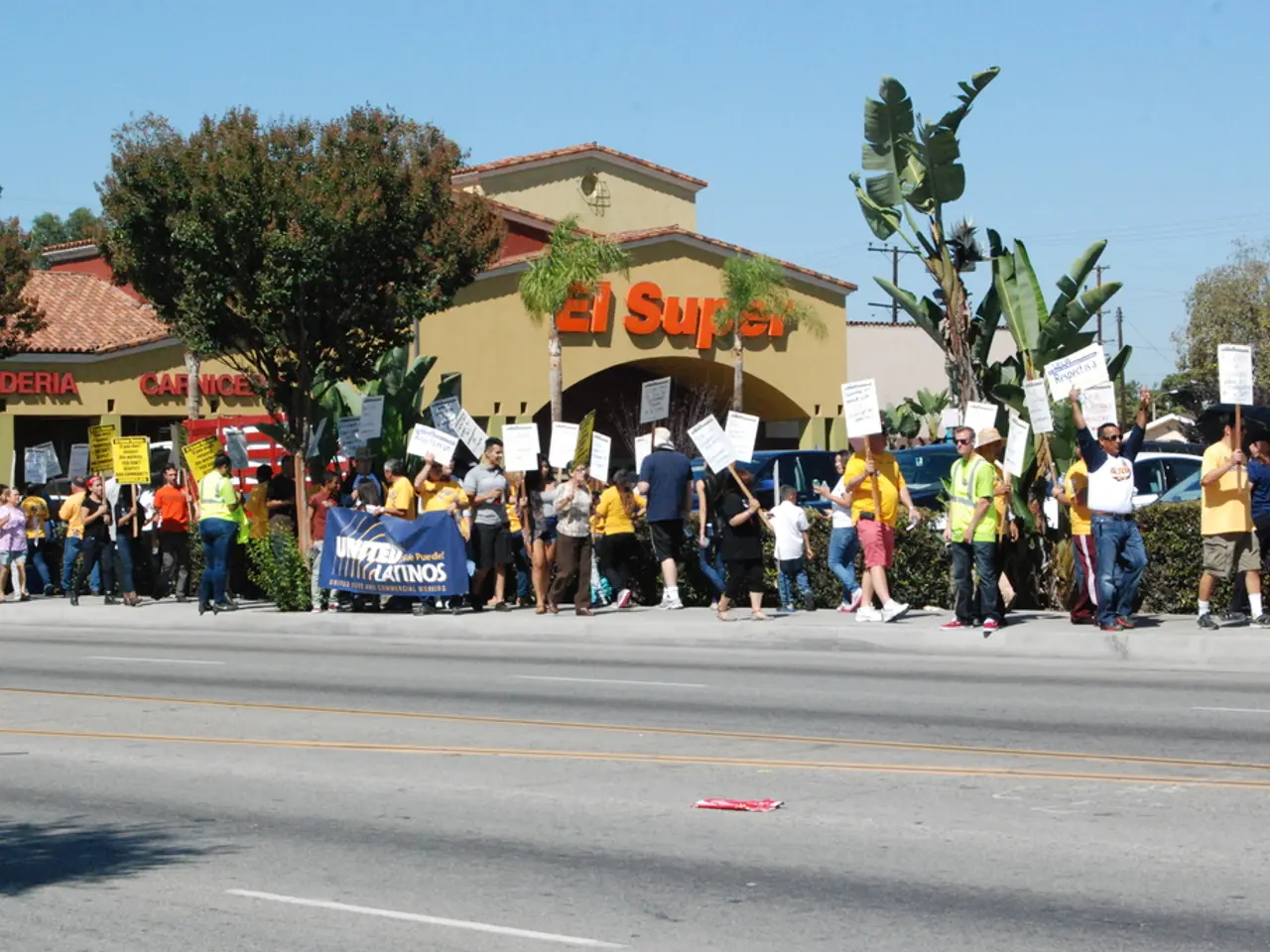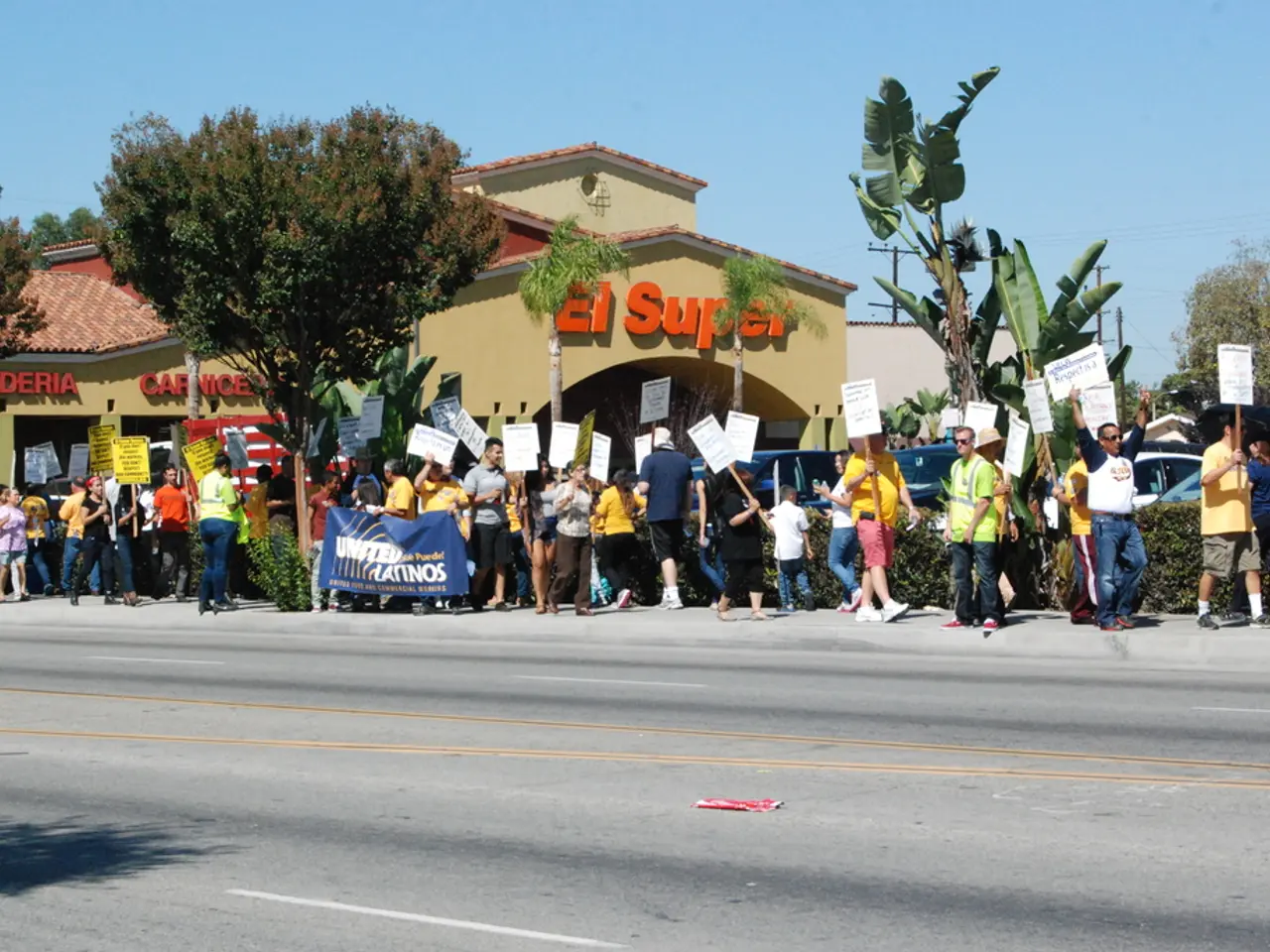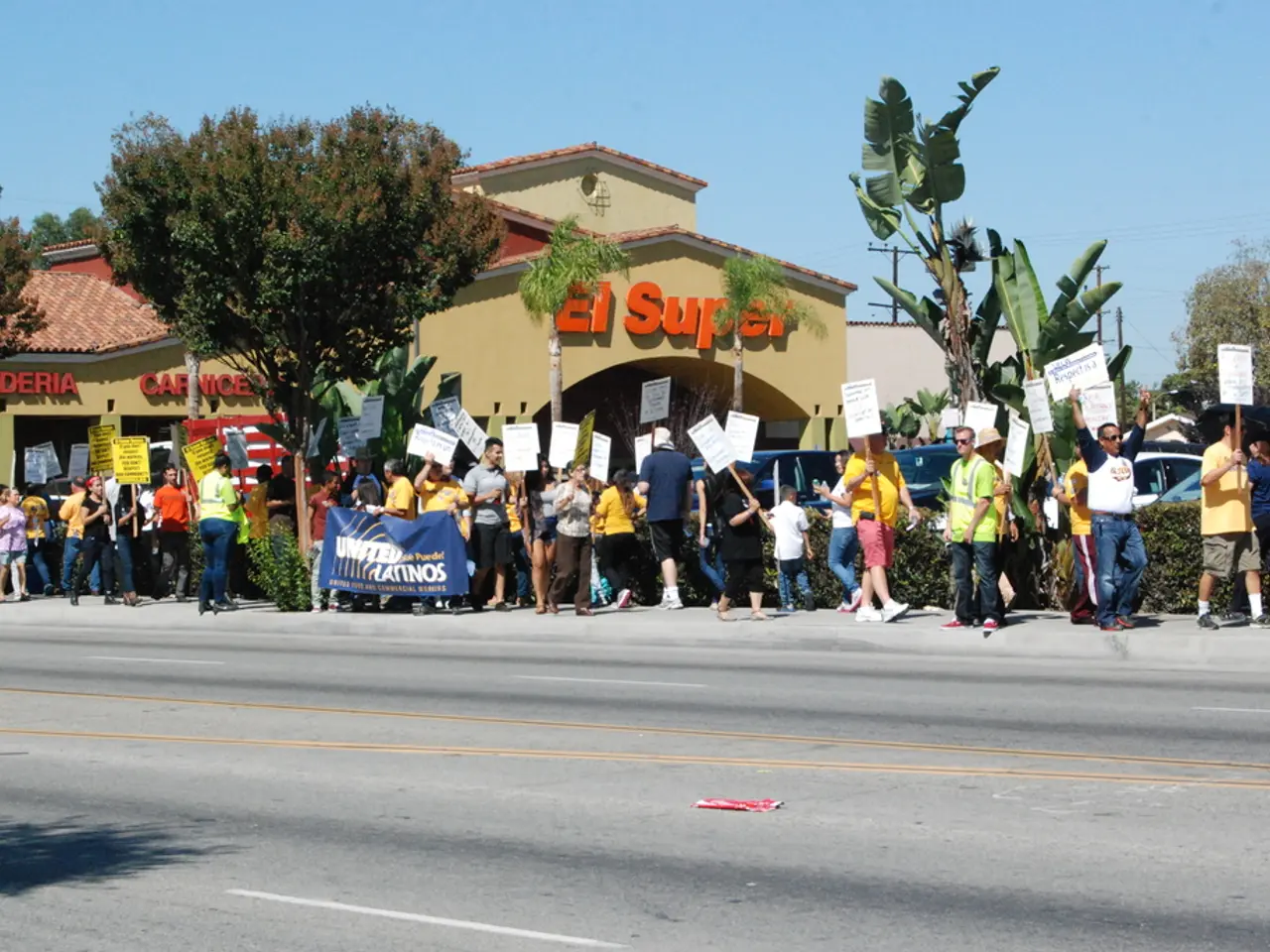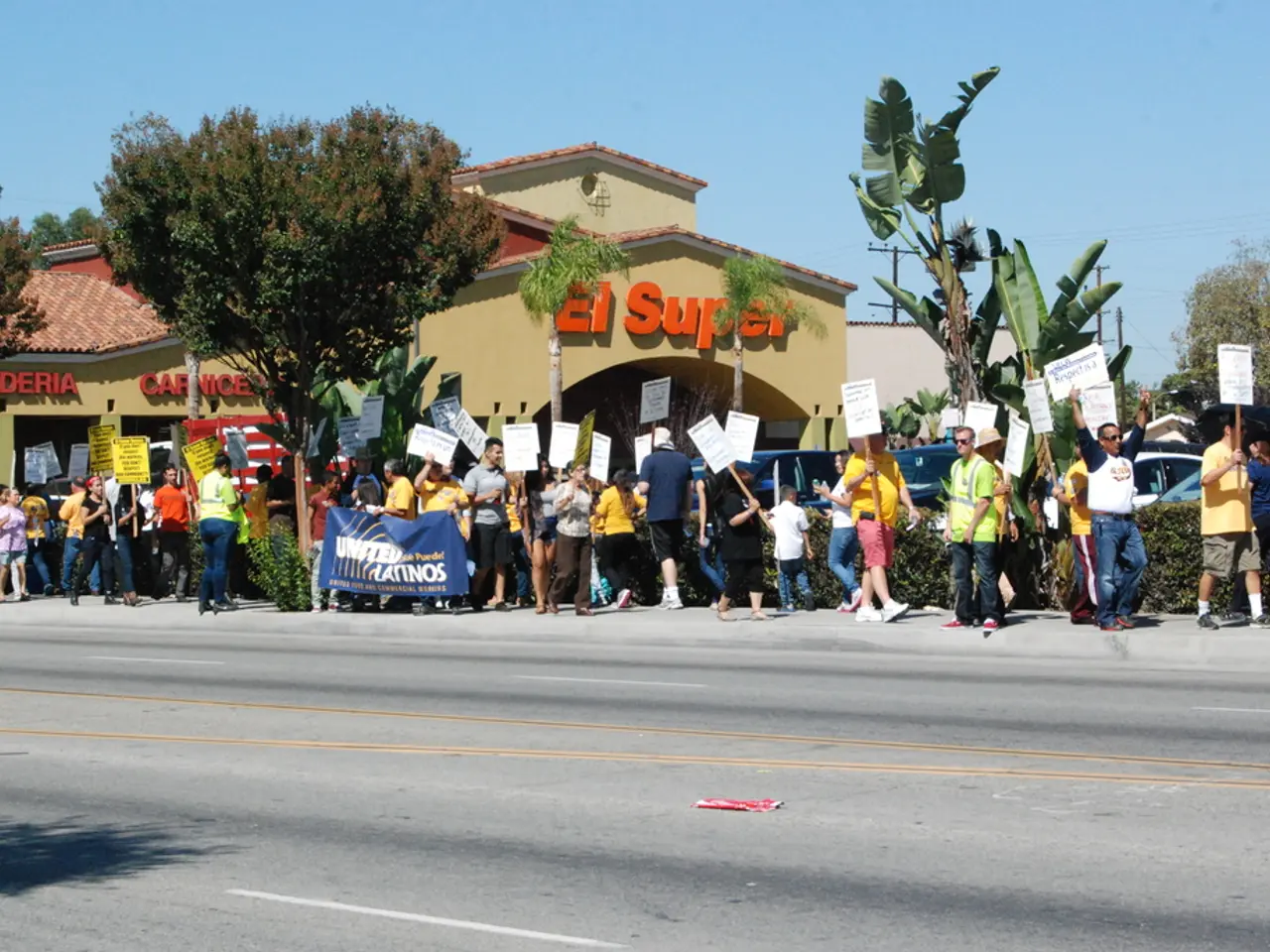German churches intensify their appeals for a vote against the extremist right-wing parties in upcoming elections.
In the heart of Europe, Germany is bracing for its general election on February 23, 2025, following the premature collapse of the incumbent coalition government led by Olaf Scholz (SPD). The political landscape is fraught with tension, as economic struggles and the contentious topic of immigration dominate public discourse.
## Political Climate and Election Outcomes
The collapse of the so-called "traffic light" coalition (SPD, Greens, FDP) in late 2024, due to disagreements over economic policies and fiscal reforms, particularly concerning the constitutional "debt brake," has led to significant shifts in the election results. The conservative CDU/CSU became the largest group, securing 28.5% of votes, but this is a historically low percentage for them. The far-right Alternative for Germany (AfD) doubled its share to 20.8%, making it the second-largest party.
The election's aftermath has revealed a fragmented political landscape, with no major party willing to work with the AfD, complicating government formation. The CDU-CSU would need to bring in another party for their future government.
## Key Issues
Economy remains the most pressing issue for Germans, with 20–27% of the population citing it as their primary concern. Economic struggles stem from the loss of cheap Russian gas due to the Ukraine war, a protectionist global trade environment, and chronic underinvestment due to the constitution’s debt brake.
Immigration is a major concern for Germans, with 26% of respondents naming it the second most important issue. It remains a central topic of debate and mobilization, especially for the AfD.
## Party and Religious Organization Stances on Immigration and Far-Right Nationalism
The CDU/CSU, the main conservative alliance, generally advocates for controlled migration and integration, but is firmly against cooperation with the AfD. They oppose far-right nationalism and uphold Germany’s post-war democratic consensus.
The former coalition partners (SPD, Greens, FDP) broadly support managed migration and integration, and are strongly opposed to the AfD. The Greens, in particular, advocate for humanitarian and inclusive migration policies.
The AfD is the main far-right nationalist party, advocating for strict immigration controls, even deportation of some migrants, and a strong focus on German identity. Their anti-immigration rhetoric and skepticism toward integration have made them a polarizing force in German politics.
The Left (and its offshoots like BSW) generally support open, humanitarian immigration policies but are internally divided on the issue. The BSW, led by Sahra Wagenknecht, has taken a more critical stance toward immigration than the traditional Left, but still opposes nationalism.
Major religious groups, including the Catholic Church, Protestant Church, and Jewish organizations, generally advocate for humanitarian treatment of migrants, integration, and oppose far-right nationalism. They often call for dialogue and support vulnerable populations, while maintaining a critical view of nationalist rhetoric.
## Summary Table: Party Stances on Immigration and Far-Right Nationalism
| Party/Group | Stance on Immigration | Stance on Far-Right Nationalism | |----------------------------|--------------------------------------|---------------------------------------| | CDU/CSU | Controlled migration, integration | Opposed | | SPD | Managed migration, integration | Opposed | | Greens | Open, humanitarian immigration | Opposed | | FDP | Liberal, managed migration | Opposed | | AfD | Strict controls, anti-integration | Supports nationalist policies | | Left Party/BSW | Mixed: humanitarian/open, some skepticism | Opposes nationalism, divided internally | | Major Religious Organizations | Humanitarian, integration | Oppose nationalism |
Amidst this divisive political climate, major Christian bodies in Germany, including the mainline Protestant (EKD) and Catholic Churches, have come out to warn against the extreme right. The rise of the AfD and its public links to Donald Trump come at a time when neighbouring Austria's far-right won elections in September.
More than 20 Christian bodies under ACK (Association of Christian Churches in Germany) have called for voters to defend democracy. Bavarian Markus Soeder, a conservative party heavyweight, however, criticizes churches for discussing politics and urges them to focus more on the fundamentals of the Christian faith.
The ecumenical platform, including Baptist and Mennonite federations, believes extremism and ethnic nationalism are incompatible with Christianity. Germany's main parties, including the still socialist chancellor Olaf Scholz, have abandoned the refugee welcoming policy initiated ten years ago by Angela Merkel.
The Evangelical Focus launches a #TogetherInThisMission campaign to sustain their mission, emphasizing the need for a fair refugee policy and the protection of human dignity. The election comes at a critical juncture for Germany, testing the nation's commitment to democracy and its ability to navigate complex political and social issues.
In light of the election outcomes, with the AfD doubling its share to become the second-largest party and the CDU-CSU becoming the largest group but at a historically low percentage, immigration and far-right nationalism remain central debates in the political landscape. Parties such as the CDU/CSU, SPD, Greens, FDP, and the Left have varying stances on these issues, with the AfD supporting strict immigration controls and anti-immigrant rhetoric, while the religious organizations, including the Catholic Church, Protestant Church, and Jewish organizations, generally advocate for humanitarian treatment of migrants and oppose far-right nationalism. Amidst this divisive climate, major Christian bodies in Germany have called for voters to defend democracy and maintain commitment to upholding human dignity and fair refugee policies.




